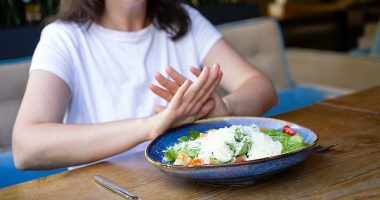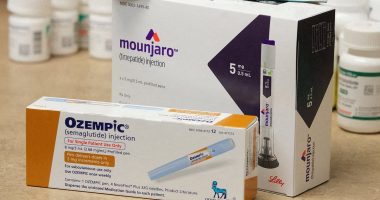Share this @internewscast.com
A tasty nut could lower your risk of a deadly disease, according to a new study. Scientists have discovered that walnuts can not only reduce inflammation in the body but reduce your chances of developing bowel cancer.
Also known as colorectal cancer, bowel cancer, is the fourth most common type of cancer in the UK. It is also the second most common cause of cancer death, leading to around 16,800 fatalities every year.
While it is not known exactly what causes bowel cancer, there are a number of factors that could raise your risk. The NHS states that it can be caused by genetic changes, lifestyle, and environmental factors.
Diet is among the lifestyle factors linked to bowel cancer, with red and processed meat believed to be among the worst foods you can eat. But research has shown that some foods could have the opposite effect.
A study, published in Cancer Prevention Research journal, showed that walnuts could be key in the fight against bowel cancer. More specifically, the team discovered that compounds found in the nuts called ellagitannins can be metabolised by the gut into molecules called urolithins, which could be anti-inflammatory and anti-cancer.
As reported by News Medical, researcher Daniel Rosenberg, said: “Ellagitannins in the walnut are importantly providing the anti-inflammatory and anti-cancer properties that we’re seeing in patients in our clinical trial research, particularly the gut’s conversion of ellagitannins to a potent anti-inflammatory agent, urolithin A.”
The clinical trial findings show that high levels of urolithin A formation by the gut microbiome from eating walnuts has a positive impact on reducing inflammatory markers across blood, urine, and feacal samples. This could even positively affect the immune cells within colon polyps.
As part of the study, a total of 39 patients who already had an elevated risk of bowel cancer were first told to avoid all ellagitannin-containing foods and beverages for a week. This meant their urolithin levels were either at or close to zero for the trial.
Then they consumed ellagitannin-rich walnuts as part of their closely monitored diet for three weeks. At the end of the three weeks, all participants underwent colonoscopy.
It was discovered that patients had not just elevated levels of urolithin A but also peptide YY, a protein that has been previously associated with inhibition of bowel cancer. Moreover, they found lowered levels of several inflammation markers in the blood were also found, which was most apparent in obese patients.
The team also utilised spatial imaging technology for a detailed view of the direct cellular interactions present inside colon polyps that were removed during colonoscopy. This showed that patients with high levels of urolithin A formation following walnut consumption was directly associated with reduced levels of several important proteins that are often present in polyps.
A protein known as vimentin, which is often found in more advanced forms of bowel cancer, was greatly reduced inside polyp tissues obtained from patients who had also formed the highest levels of urolithin A.
Find out about the symptoms you need to watch out for and get health advice with our free health newsletter from the Daily Express
Dr Rosenberg continued: “Urolithin A has a very positive influence on inflammation and maybe even cancer prevention. Our study proves that dietary supplementation with walnuts can boost the general population’s urolithin levels in those people with the right microbiome, while significantly reducing several inflammatory markers, especially in obese patients.”
He concluded: “Our study provides strong rationale for dietary inclusion of walnut ellagitannins for cancer prevention. Nutrients from walnuts can contribute to reduced cancer risk. There are many potential benefits one can get from eating walnuts, with so little downside risk, that just grabbing a handful every day is really something that you can easily do for your long-term health benefit.”
To lower your risk of bowel cancer, the NHS recommends you:
- Eat a healthy diet including at least five portions of fruit and vegetables a day
- Stay active and exercise regularly
- Lose weight if you’re overweight
- Quit smoking
- Drink less alcohol
- Eat less red and processed meat.















